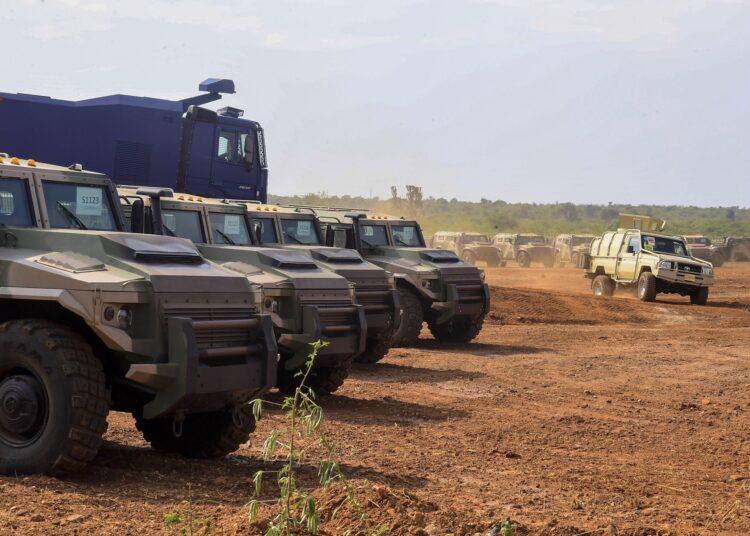Armoured vehicles manufacturer Streit has opened a new armoured vehicle factory in Uganda, built in partnership with the National Enterprise Corporation (NEC).
Earlier this week, President Yoweri Museveni formally opened the facility which will produce and maintain a vast range of armoured vehicle for the Ugandan army and the international market.
Streit Uganda and NEC announced in mid-October 2021, the partnership for the manufacture of armoured vehicles in Nakosongola in central Uganda, and that the new company, NEC-Streit Uganda Ltd, will provide a variety of security solutions, including through technology transfer.
State-owned National Enterprise Corporation (NEC) is the commercial arm of the Uganda People’s Defence Force (UPDF), established in 1989 by an Act of the Parliament of Uganda. Its commercial ventures are undertaken through its subsidiaries and joint ventures
“I am happy to witness clear dividends in the form of production and assembly plants under NEC-private companies’ joint ventures,” Museveni said while commissioning the armoured vehicle facility on 27 July, along with a 500 kW solar power plant, a surgical masks and sanitizer producing entity, and an oxygen/nitrogen plant. He also inspected some of the vehicles manufactured by Kiira motors.
“I salute the progress that our scientists are making in those fields, acquiring the capacity to produce quality products to enable us to stand on our own, not only in the military space but in other areas of strategic importance to enhance our broad security,” Museveni said. He added that Uganda would no longer need to buy foreign vehicles when local manufacturing was possible.
“It’s a full-fledged manufacturing facility, not just assembly,” Streit chairman Guerman Goutorov said. “All the products it will produce you can proudly say: made in Uganda.” He added that its products will help fight terrorism and crime.
Uganda People’s Defence Force chief General Wilson Mbadi said the armoured vehicle plant would produce vehicles for Uganda’s military, police, VIPs, and regional requirements. “By building a self-reliant defence industry, we are capable of securing Uganda and also support the economy. This will also help us tackle the problem of economic irrationality by consuming what we don’t produce and producing what we don’t consume. It will help us apart from technology transfer, do local capacity building, save foreign currency and enhancing mobility, fire power, protection and operation efficiency,” Mbadi said.
“This factory has the capacity to manufacture for UPDF, police, VIPs and the regional requirements. At some point we will consume these and our market will not be enough. We must be friends with neighbours so as they can buy the balance.”
Streit is willing to offer Uganda other equipment, including unmanned aerial vehicles, armoured boats, and communications equipment. Goutorov said Streit’s research and development will be shared with Uganda.
The NEC said customers can begin making orders for armoured cars. NEC Managing Director, Lieutenant General James Mugira said, “We will be manufacturing luxury armoured vehicles for VIPs but also manufacture police vehicles, armoured ambulances and bullion vans. Therefore, police, Bank of Uganda, private security organisations, VIPs and commercially important persons will benefit from this factory.”
Uganda has been steadily increasing its defence spending and developing its local defence industry. Uganda’s military expenditure reached Sh123.1 billion ($1.066 billion) last year, an 8.3 percent increase from Sh113.7 billion ($984.7 million) in 2020.
Between 2012 and 2021, Uganda’s military expenditure rose by 203 percent.
Last year October, the Uganda People’s Defence Forces (UPDF) commisioned a new locally-made Chui (Leopard) infantry fighting vehicle (IFV), based on Twiga’s Nyati armored vehicle.
Early this year, Uganda, along with the National Enterprise Corporation-NEC and Pro-heli International, a Russian Company commissioned a helicopter maintenance, repair and overhaul plant at the Nakasongola Air Force Base.
The MRO plant which was commissioned by President Yoweri Museveni will target the entire African helicopter MRO market including helicopters in use by UN Missions.


